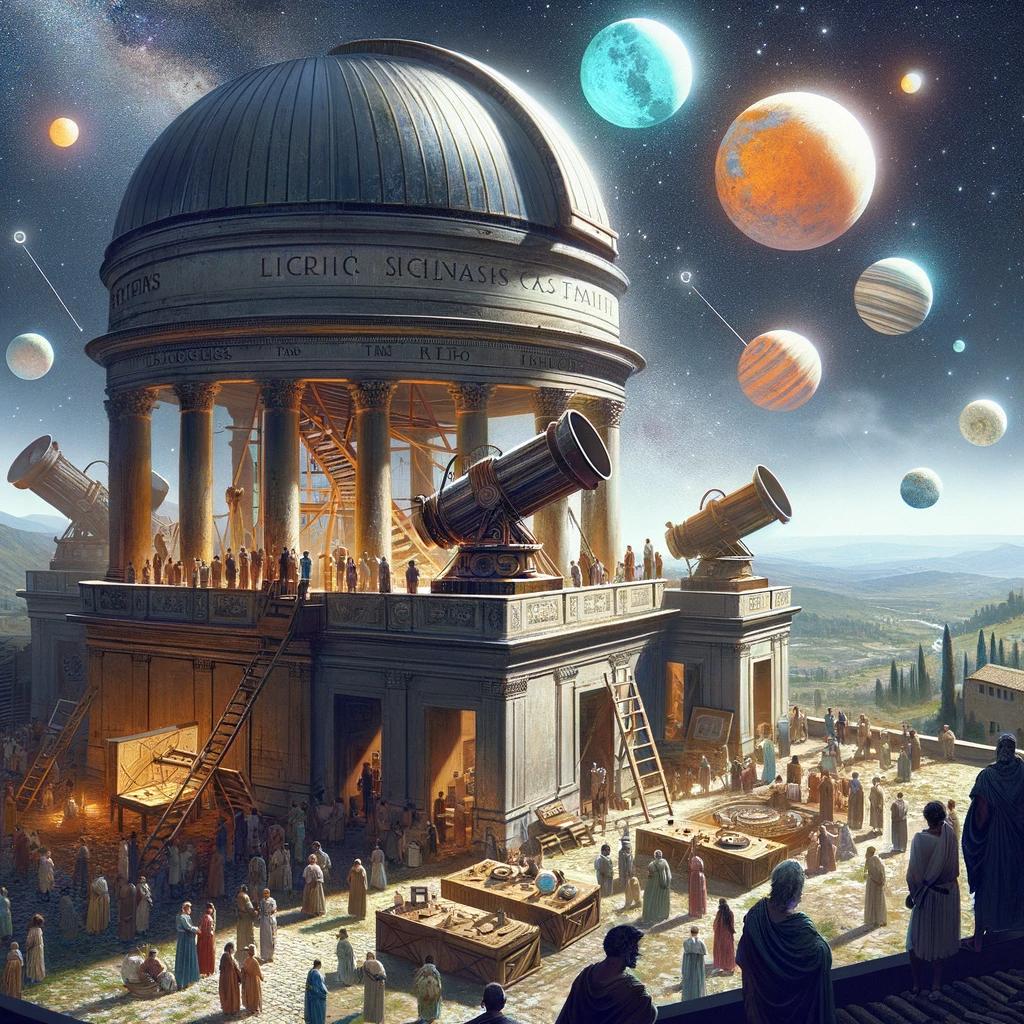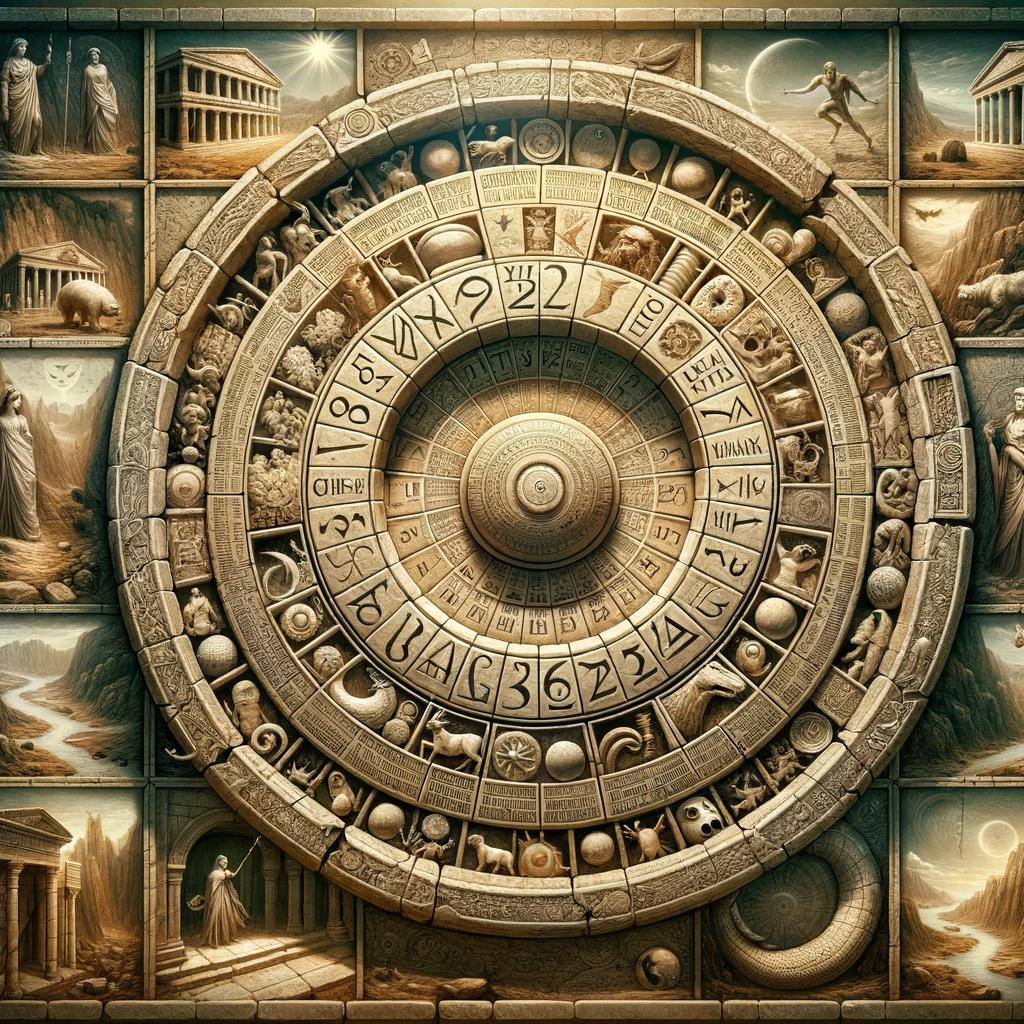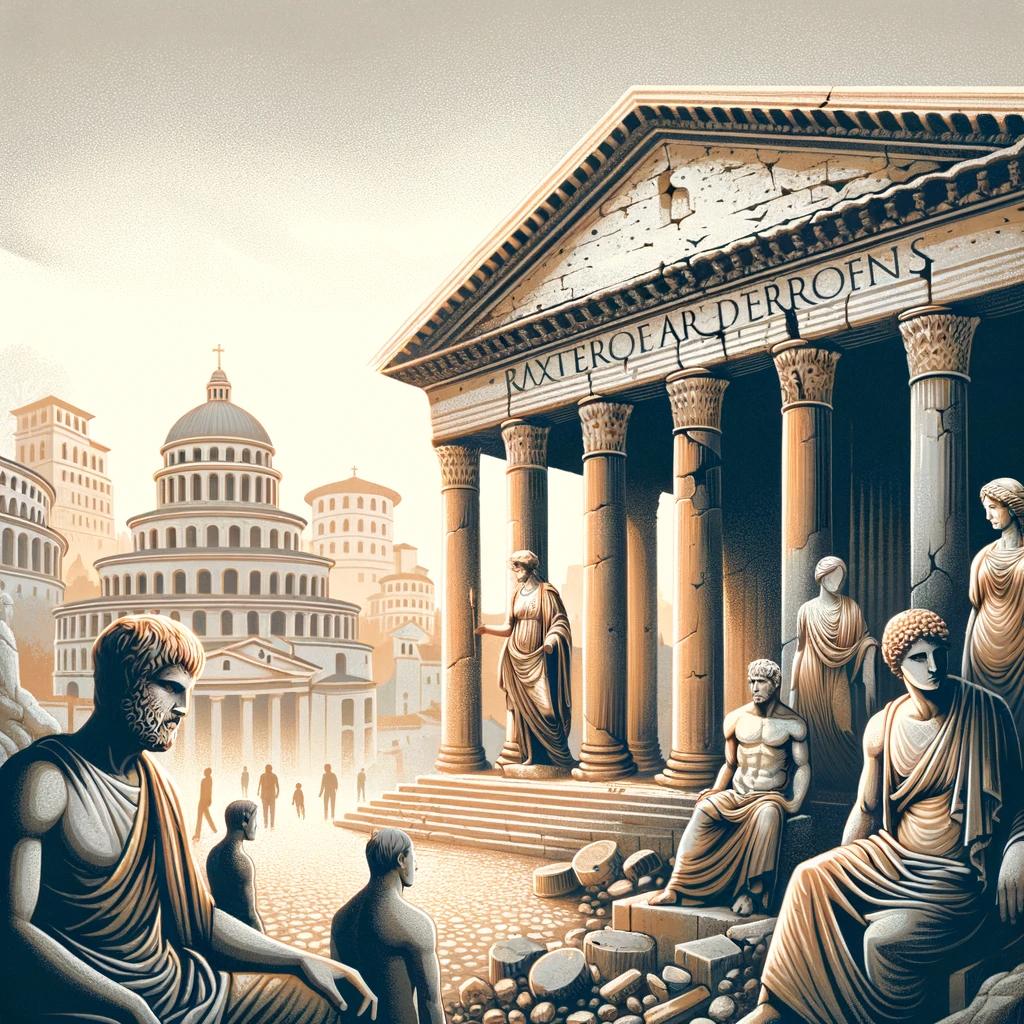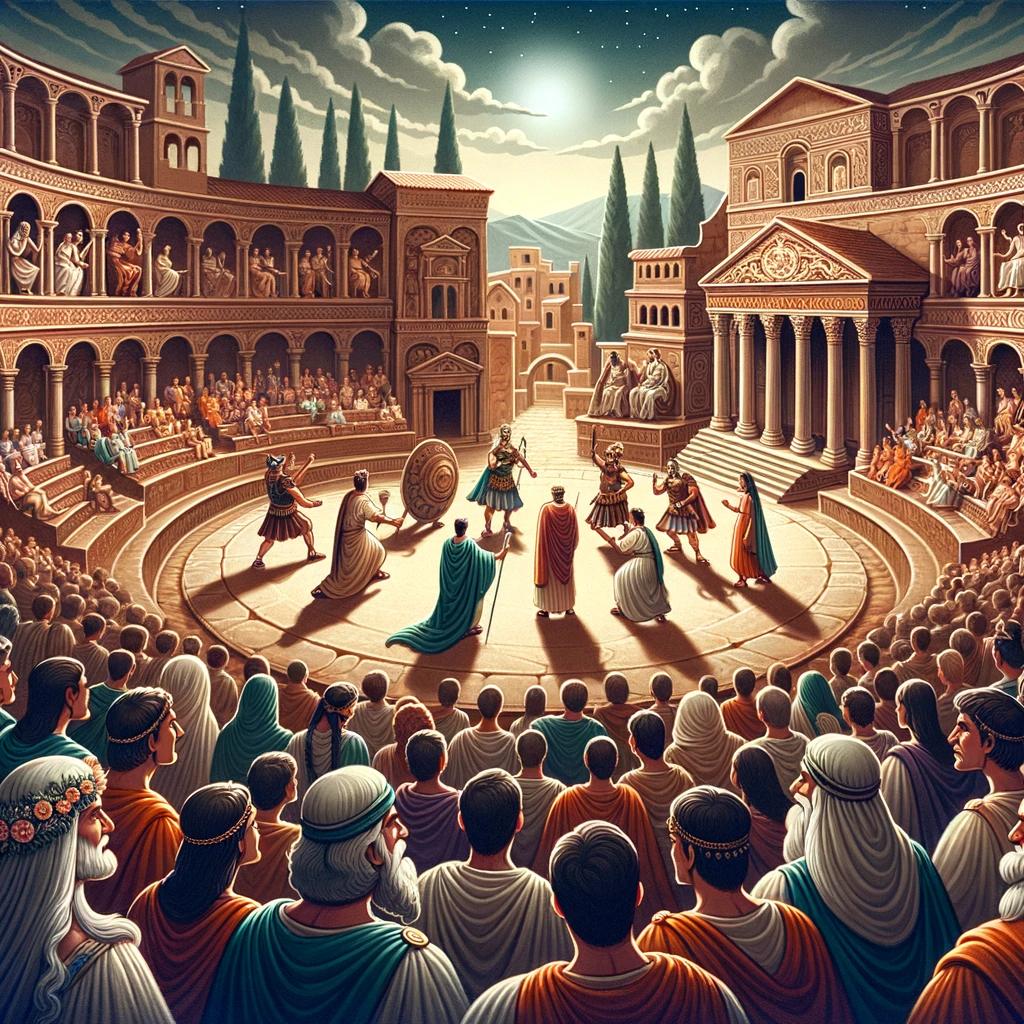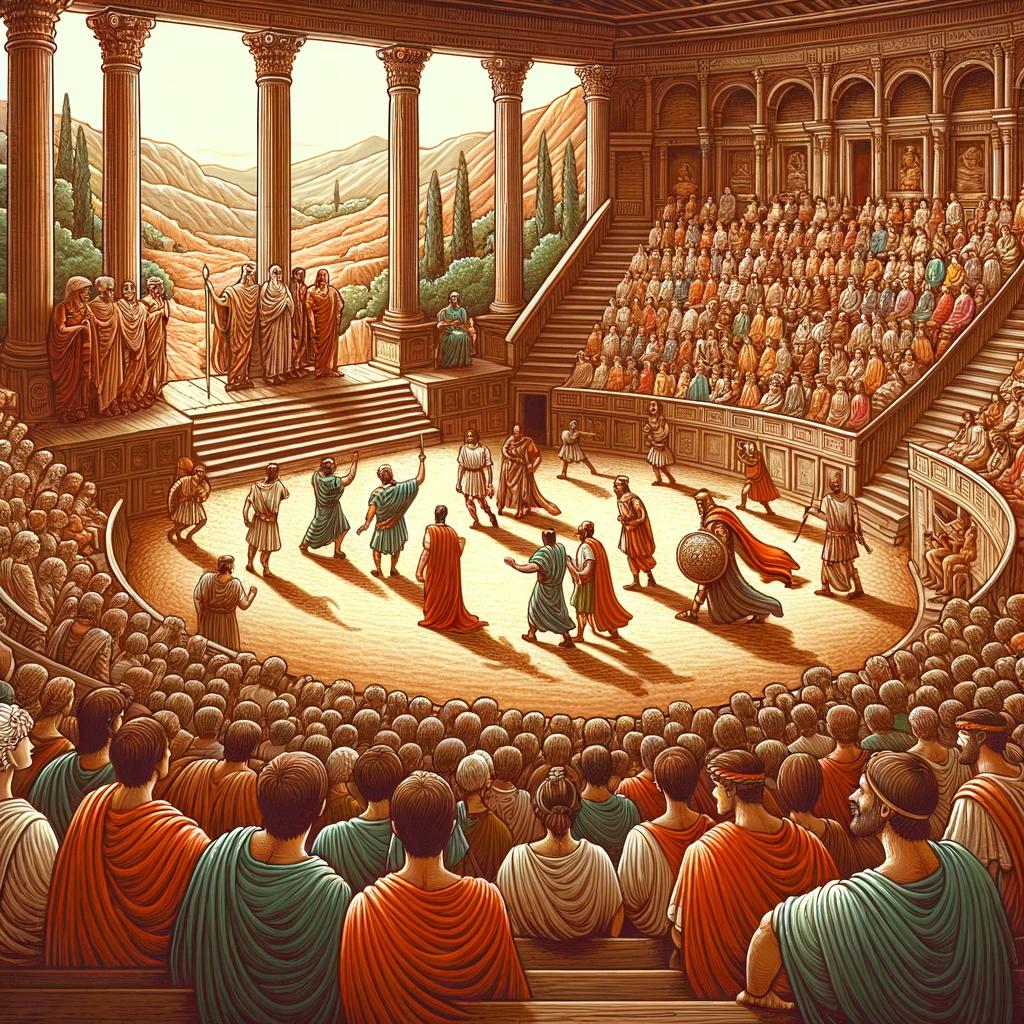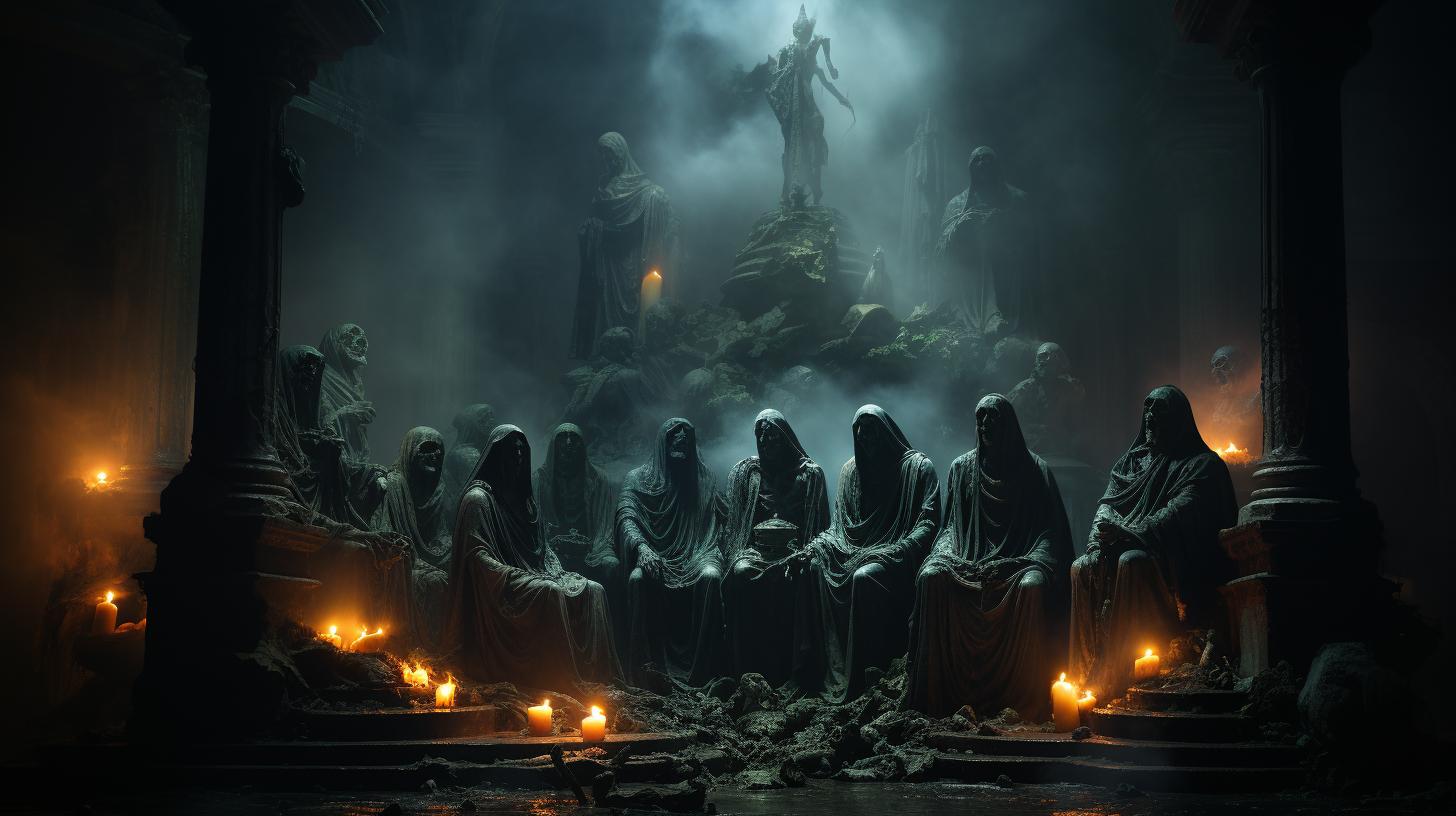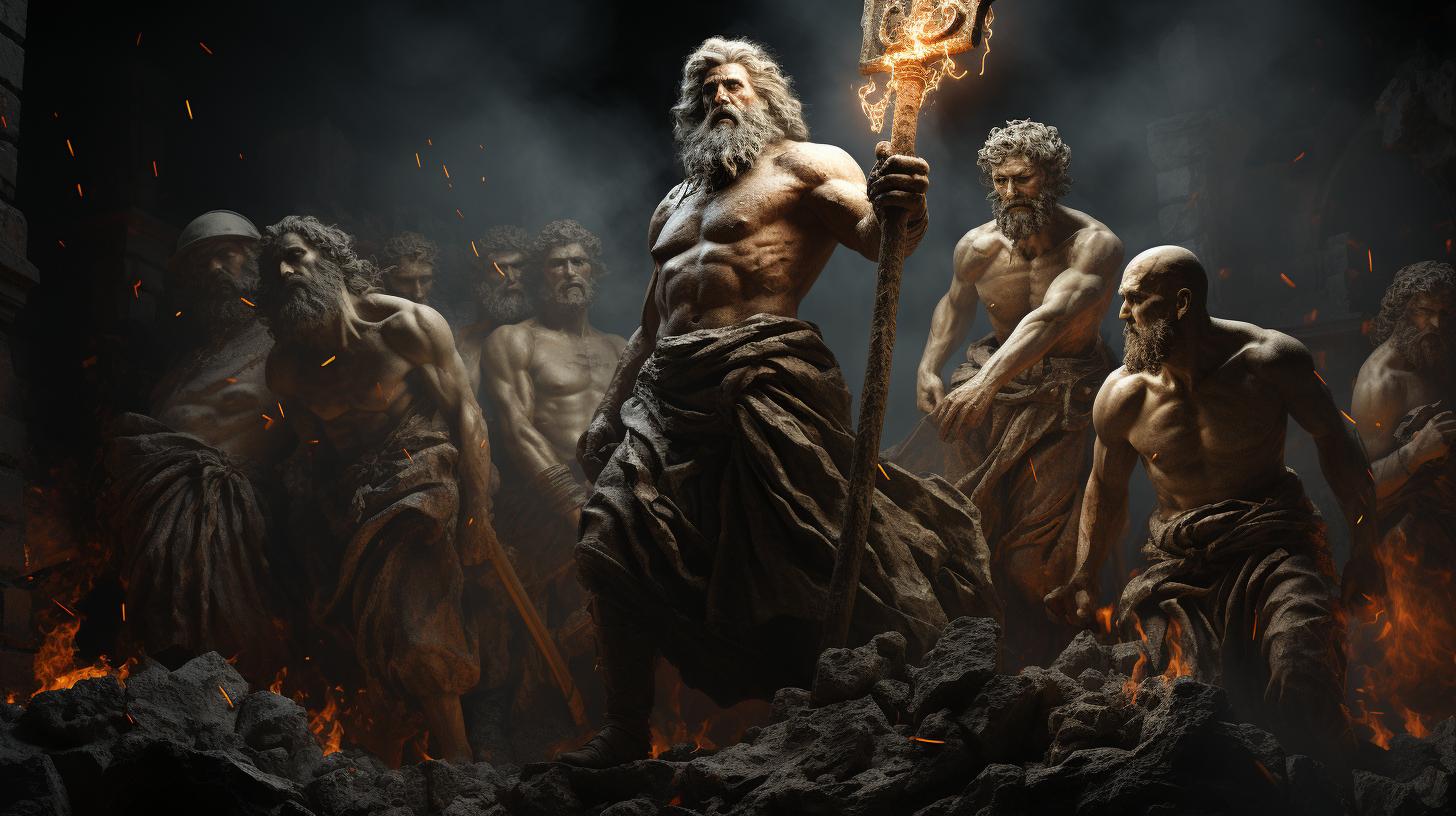Why are the Planets named after Roman Gods: A Fascinating Insight
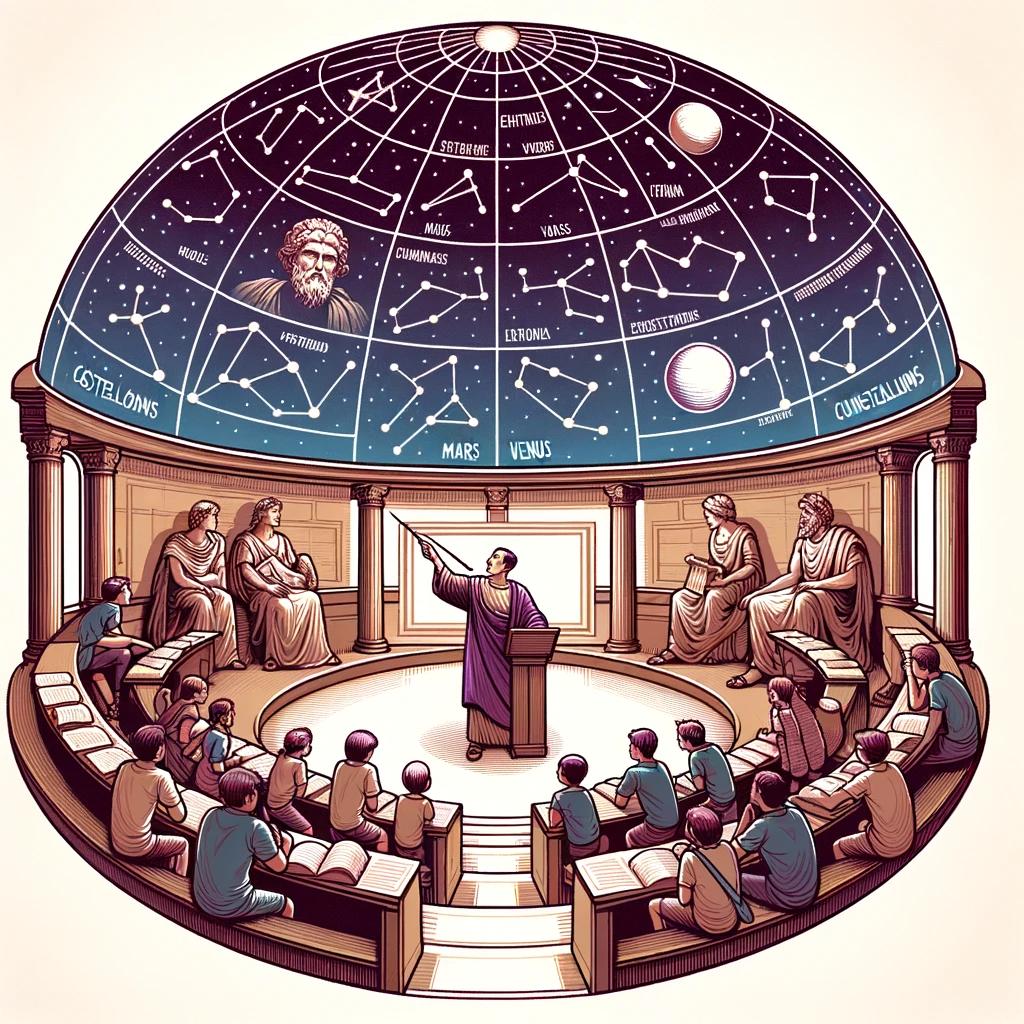
The planets in our solar system are named after Roman gods, showcasing a connection between mythology and scientific exploration. These names have their origins in ancient Roman and Greek cultures, where the planets were named after deities that held significant importance.
Saturn, Jupiter, Mars, Mercury, Venus, Uranus, Neptune, and even Pluto (although a matter of controversy) all bear names from this rich mythological background.
This article explores the fascinating reasons behind this naming tradition and delves into the unique characteristics of each planet. Let’s delve into the captivating world of the planets named after Roman gods.
Origins of the Planet Names
The names of the planets in our solar system have their origins in both Roman and Greek mythology. These ancient belief systems were rich with gods and goddesses who governed various aspects of life and nature.
The ancient Romans, in particular, adopted and adapted much of Greek mythology into their own culture.
Roman and Greek Mythology
Roman and Greek mythology were closely intertwined, with many gods and goddesses sharing similar attributes and roles. The Romans often identified their deities with the Greek gods and incorporated them into their own religious practices.
This blend of mythology provided a rich tapestry of stories and characters that influenced the naming of the planets.
Ancient Roman Naming Tradition
The ancient Romans were keen observers of the natural world and noticed the five brightest planets visible in the night sky: Mercury, Venus, Mars, Jupiter, and Saturn. They named these celestial bodies after their gods, attributing specific characteristics to each planet based on their respective mythological associations.
This tradition of naming the planets after Roman gods served as a way to honor these deities while also providing a memorable and meaningful identification for each planet.
Saturn: The Roman God of Agriculture and Wealth
Saturn, the sixth planet from the Sun in our solar system, holds immense fascination due to its unique characteristics and symbolism connected to Roman mythology.
Known as the Roman god of agriculture and wealth, Saturn encompasses a range of intriguing features and holds significant cultural importance.
Unique Characteristics of Saturn
Saturn is a gas giant composed mainly of hydrogen and helium. However, it distinguishes itself through its spectacular and complex ring system, composed of billions of small fragments of ice and rock coated with various materials.
These rings make Saturn a visually captivating planet and set it apart from other planets in the solar system.
Significance of the Name
The name “Saturn” itself stems from ancient Roman mythology, honoring the god of agriculture and wealth. As the father of Jupiter, Saturn holds an important place in the Roman pantheon.
The tradition of naming the planets after Roman gods and goddesses originated thousands of years ago when the ancient Romans assigned names to the five brightest planets visible to the naked eye in the night sky.
By understanding the unique characteristics of Saturn and the significance of its name, we can delve deeper into the fascinating connection between mythology and the celestial bodies that grace our solar system.
Jupiter: The King of the Roman Gods
Jupiter, as the largest planet in our solar system, holds great significance both in size and importance. With its immense mass, Jupiter has a dominant gravitational influence, shaping the orbits of other celestial bodies in its vicinity.
Size and Importance of Jupiter
Jupiter’s size is truly awe-inspiring. It is more than 11 times wider than Earth and contains twice the mass of all the other planets combined. Its gigantic presence plays a crucial role in maintaining the stability of our solar system.
Naming Jupiter after the King of the Gods
The name “Jupiter” has deep roots in Roman mythology. He was revered as the king of the gods, known for his power, authority, and control over the heavens. Naming the largest planet after Jupiter was an acknowledgment of its dominant position in the solar system.
Mars: The Red Planet of War
The planet Mars, often referred to as the “Red Planet,” is a subject of curiosity and wonder for scientists and space enthusiasts alike. Its distinctive features set it apart from the other planets in our solar system.
Distinctive Features of Mars
Mars is known for its reddish appearance, which is due to the abundance of iron oxide, or rust, on its surface. This gives the planet a unique and captivating hue.
Additionally, Mars has many intriguing geographical features, including the largest volcano in the solar system, Olympus Mons, and the deepest canyon, Valles Marineris.
Connection to the Roman God of War
The name “Mars” is derived from the ancient Roman god of war.
The connection between the planet and the god comes from its distinctive reddish color, reminiscent of bloodshed and conflict. The Romans believed that Mars was the embodiment of military strength and power.
Conclusion
Exploring Mars and understanding its unique characteristics not only adds to our knowledge of the universe but also highlights the fascinating connection between mythology and the scientific world. The Roman god of war continues to leave his mark on the universe through the striking presence of the planet Mars.
Mercury: The Swift Messenger of the Gods
Mercury, named after the messenger god of Roman mythology, possesses fascinating attributes and a unique orbit within the solar system.
Quick Orbit and Key Attributes of Mercury
Mercury’s orbit is the fastest among all the planets, completing a revolution around the Sun in just 88 Earth days. Its proximity to the Sun results in extreme temperature changes, with scorching days and freezing nights.
Additionally, Mercury has a small size, making it the smallest planet in our solar system.
Naming Mercury after the God’s Messenger
Aptly named after the swift messenger god, Mercury reflects its quick orbit and proximity to the Sun. In Roman mythology, Mercury was known for his agility and speed, attributes that align with the planet’s characteristics and behavior.
Venus: The Shining Star of Love and Beauty
Venus, the second planet from the Sun, is a true marvel in our solar system. Known as the “shining star” of love and beauty, Venus captivates us with its radiant brilliance.
Let’s delve into the noteworthy aspects that make Venus a celestial wonder.
Brightness and Notable Aspects of Venus
- Venus is the brightest natural object in the night sky, apart from the Moon, earning it the title of the “Evening Star” or the “Morning Star.”
- Its luminosity is due to its thick atmosphere, comprised mainly of carbon dioxide, which creates a significant greenhouse effect.
- The dense atmosphere also gives Venus a smooth and featureless surface, adorned with numerous impact craters and ancient volcanic remnants.
Linking Venus to the Roman Goddess of Love
The name “Venus” is attributed to the Roman goddess of love and beauty.
Just as the goddess herself was adored and admired, so is the planet that shares her name. Venus embodies the enchanting allure that captivated ancient minds and continues to fascinate us today.
As we gaze at the brilliance of Venus, we are reminded of the timeless beauty of the celestial realm and the enduring connection between mythology and the wonders of our solar system.
Uranus and Neptune: Outer Planets with Mythological Names
Uranus and Neptune are intriguing outer planets in our solar system, and their names are deeply rooted in mythology. Let’s explore the fascinating discovery and unique traits of Uranus, as well as the reasons behind its honorable naming after a Greek god.
Discovery and Unique Traits of Uranus
Uranus was first discovered in 1781 by astronomer William Herschel. It stands out with its distinctive pale blue color and its position as the seventh planet from the Sun. Uranus also has a rather unusual characteristic—it rotates on its side, unlike the other planets.
Honorific Naming of Uranus after a Greek God
Following ancient Roman and Greek mythology, astronomers chose to name Uranus after the Greek god of the sky. This tradition allows us to connect the celestial world with the tales and beliefs of ancient civilizations, creating a bridge between the past and the present.
Neptune’s Discovery and Remarkable Qualities
Neptune, the eighth planet from the Sun, was discovered in 1846 through mathematical predictions based on anomalies in Uranus’ orbit. It stands out with its stunning deep blue color and is known for its powerful storms and distinct weather patterns.
Choosing Neptune as a Tribute to the Roman God of the Sea
In homage to the Roman god of the sea, astronomers named the deep blue planet Neptune. This decision not only honors ancient mythology but also reflects the planet’s striking resemblance to the vastness and mystery of the Earth’s oceans.
Pluto: Controversy Surrounding a Former Planet
Pluto, once considered the ninth planet of our solar system, has been at the center of a longstanding controversy. With its reclassification as a “dwarf planet” by the International Astronomical Union in 2006, debates over its planetary status intensified.
Discussion on Pluto’s Categorization
There are differing opinions among scientists and astronomers regarding whether Pluto should be included as a planet or classified differently. Some argue that its small size and irregular orbit make it more similar to other celestial bodies in the Kuiper Belt, leading to its categorization as a dwarf planet.
Others, however, contend that Pluto possesses distinct characteristics that align with the traditional definition of a planet. Its historical recognition as the ninth planet and its unique geological features, such as its moon Charon, are cited as evidence for maintaining its planetary status.
Tribute to the Roman God of the Underworld
Pluto’s original name was inspired by the Roman god of the underworld, reflecting its perceived mysterious and distant nature. The suggestion to honor this mythological god was made by an 11-year-old English girl, Venetia Burney, in 1930.
While the debate about Pluto’s planetary status continues, its association with the god of the underworld remains a testament to the historical context in which the planets were named after Roman and Greek deities.
Further Exploration of the Solar System’s Wonders
As we delve deeper into the vastness of our solar system, we uncover an array of fascinating celestial objects beyond just the planets. Moons, asteroids, comets, rings, and craters offer us glimpses into the intricate workings of the cosmos.
The moons of the planets, such as Titan, Ganymede, and Europa, are captivating worlds of their own. These natural satellites hold secrets about the planet they orbit and could potentially harbor life in their unique environments.
- Asteroids, like Ceres and Vesta, are remnants from the early formation of our solar system. Studying them provides valuable insights into the origins of the planets and the dynamics of space.
- Comets, such as Halley’s Comet and Comet Hale-Bopp, with their beautiful tails, offer a mesmerizing display as they journey through the cosmos.
These icy bodies contain vital clues about the history and composition of our solar system.
- The enigmatic rings of Saturn, composed of countless particles of ice and rock, form an intricate dance around the planet.
Understanding their structure and formation sheds light on the complex interplay between gravity and motion in the universe.
- Craters, like the famous Meteor Crater and the impact sites on the moon, serve as testament to the violent history of our solar system.
By studying these impact features, scientists gain insights into cosmic collisions and their consequences.
Embarking on the exploration of these wonders deepens our understanding of the universe and sparks our curiosity to discover more.
As humanity continues to push the boundaries of space exploration, we can look forward to unraveling even more extraordinary mysteries and expanding our knowledge of the cosmos.
.

